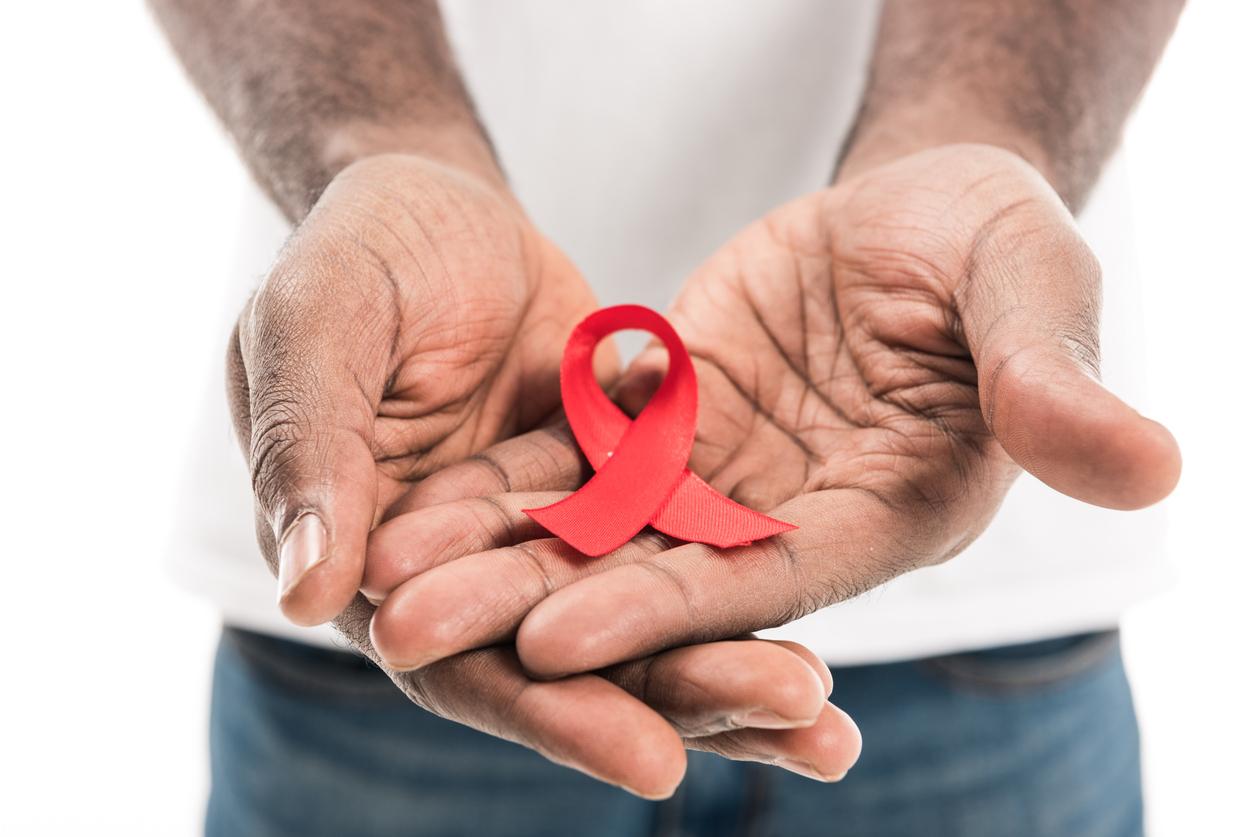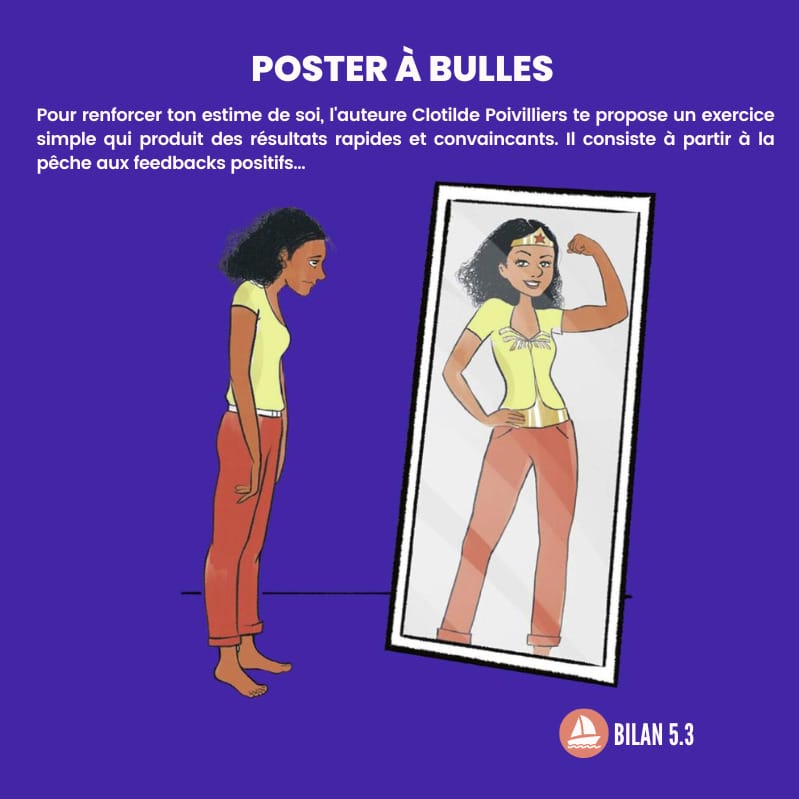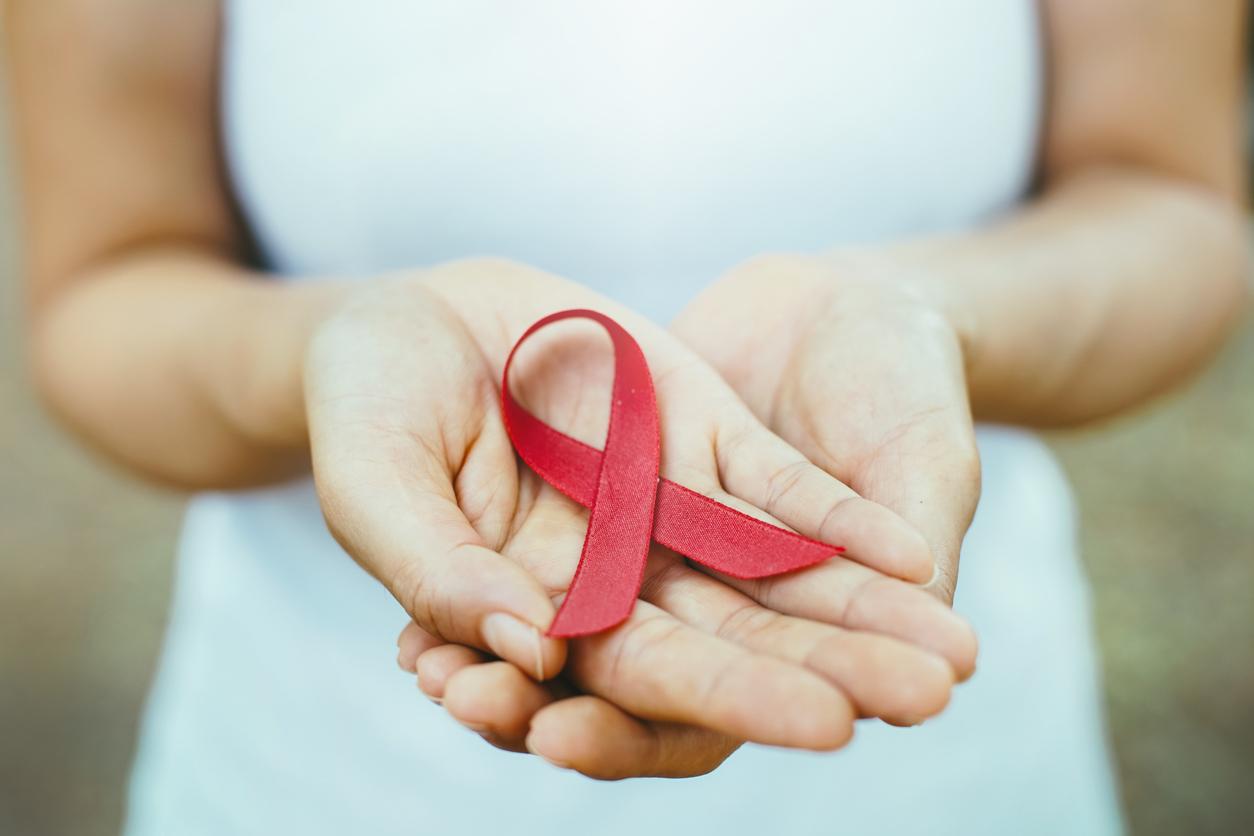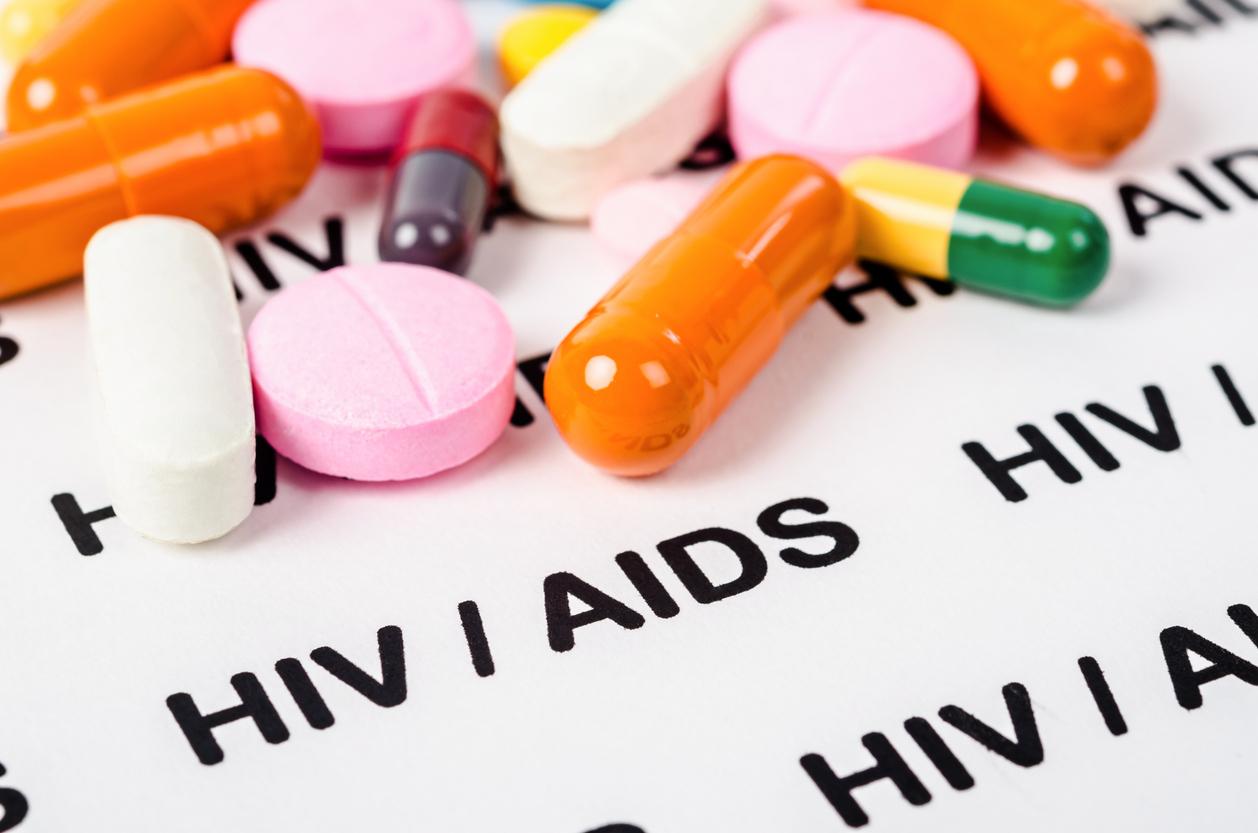Many misconceptions about HIV are still stubborn among young French people. Here are the ones.

- 30% of 15-24 year olds think that the AIDS virus can be transmitted by kissing an HIV-positive person.
- A quarter of young people also believe that HIV is transmitted by sitting on a public toilet seat, drinking from the glass of an HIV-positive person or sharing the same plate.
- One in three young people finally think that there is a vaccine to prevent the transmission of the AIDS virus or a treatment to cure it.
On the occasion of World AIDS Day, Sidaction publishes the results of a new survey carried out in partnership with Ifop among young French people aged 15 to 24.
In 2023, 79% of young people believe they have sufficient knowledge about HIV/AIDS, modes of transmission and means of prevention. A figure which remains stable compared to 2022 (+2 pt). “This is the highest level of declarative information obtained since the Covid crisis which undermined awareness of HIV and sexual health. We must emphasize the declarative term because we see that there is still a lot false information circulating. Preconceived ideas about people living with HIV have never been so present in the minds of 15-24 year olds. The stigma that these prejudices generate is more than worrying.” observes Florence Thune, general director of Sidaction.
HIV: what are the misconceptions circulating among young people?
Thus, 30% of 15-24 year olds think that the AIDS virus can be transmitted by kissing an HIV-positive person (+13 points compared to 2022). A quarter of young people also believe that HIV is transmitted by sitting on a public toilet seat (+8 pt), by drinking from the glass of an HIV-positive person (+10 pt) or by sharing the same plate (+ 10pt). One in three young people finally think that there is a vaccine to prevent the transmission of the AIDS virus or a treatment to cure it. “More than a quarter of young people think that an HIV-positive person on treatment could represent a danger to others,” complete the authors of the survey.
HIV: what are the stigmatizations suffered by patients?
The study also measured stigma against people living with HIV, among young people and in the general population:
– 44% of French people would be uncomfortable if they learned that the person looking after their child(ren) was HIV positive.
– A third party would be uncomfortable with the idea of going on vacation with an HIV-positive person.
– 1 in 4 people would be uncomfortable if their work colleague was HIV positive.
– 31% of 15-24 year olds surveyed would refuse to talk to those around them about their HIV status, with, among these, 41% who would not do so out of shame.
“It is urgent to react to these stigmas and to intensify awareness and prevention of HIV/AIDS. Today, HIV-positive people under effective treatment no longer transmit the virus. However, 63% of young people and All French people see a person’s HIV status as an important criterion for deciding to enter into a romantic relationship with them. These findings are appalling. It is urgent to react for the mental health of HIV-positive people and for the sexual health of young people “, concludes Florence Thune.
















